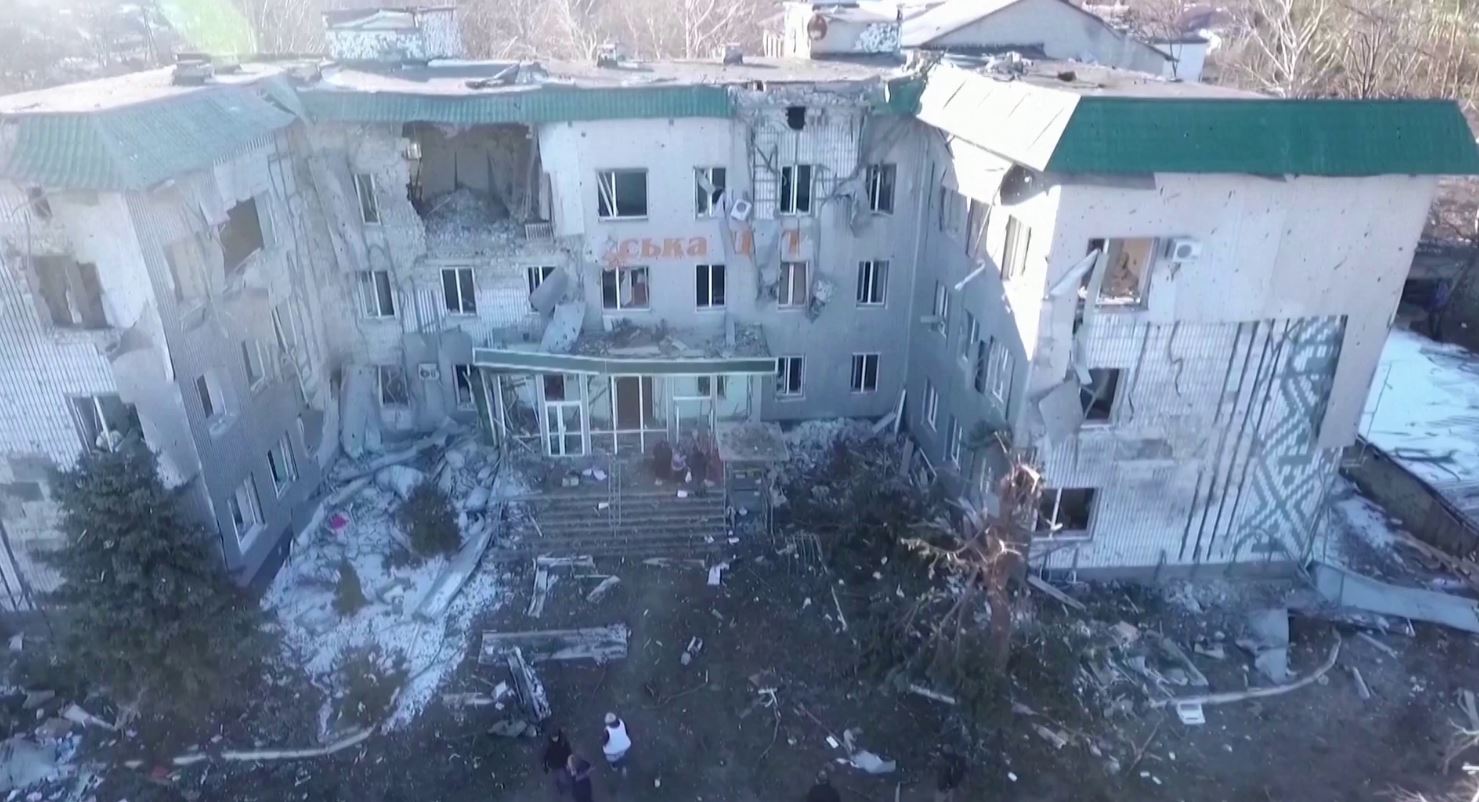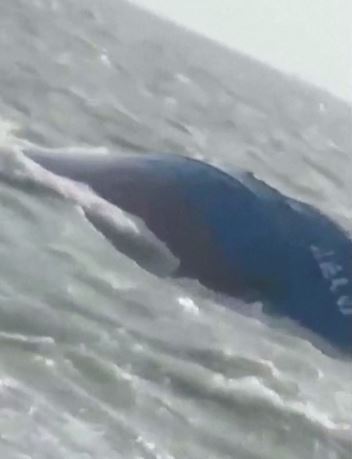Fukushima Residents Protest Radioactive Water Dumped into the Sea
(Japan)
Thousands of people gathered in Tokyo on Saturday to protest against Japan's nuclear policy, including its plans to release treated water from the crippled nuclear power plant into the ocean.
Eleven years after one of the world's worst nuclear disasters, residents in Fukushima continue to face challenges from the aftermath.
Over 2,000 people gathered on Saturday to protest against the action by the Japanese government and the Tokyo electric company, the latter facing more than 30 lawsuits after lives were devastated by the Fukushima Daiichi nuclear power plant accident.
The contaminated soil is kept at more than 800 temporary locations in six municipalities in Fukushima Prefecture.
The government's plan to release treated water from the crippled nuclear power plant into the ocean has spurred strong protests, including among the international communities.
People are not convinced by the government's explanation that it is running out of options and water to be released presents no harm to the sea life.
"We do not trust the government's actions. We will never allow the flushing of polluted water without the locals' permission," said Yoshiharu Monma, Chairman of the Association of Landowners in Fukushima.
The Japanese government sought the endorsement of the International Atomic Energy Agency (IAEA), but the public still worries that adequate measures have not been taken.
"I totally disapprove. The IAEA is an organization that promotes nuclear power. We feel a sense of crisis that the IAEA is deeply involved in the policies related to the reconstruction of Fukushima and the Fukushima nuclear accident," said Saeko Uno, a protester from Fukushima.
The IAEA task force is scheduled to visit Japan again and conduct more reviews shortly. But many Japanese are asking for a third party -- including local scientists -- to inspect the treated water.
The Daiichi nuclear plant had its key cooling functions knocked out after being battered by a massive earthquake-triggered tsunami in 2011, resulting in the worst nuclear crisis since Chernobyl in 1986.
Russian Army Shoots Down Ukrainian Military Transport Plane
(Russia)
Russian troops, on Saturday, shot down a Ukrainian military transport plane near Odessa, which was carrying weapons supplied by Western countries, according to the Russian Ministry of Defense.
Russian Defense Ministry spokesman Igor Konashenkov told a news briefing on Saturday that, "Russian Air Force shot down a Ukrainian military transport plane near Odessa. The plane was used to transport a large amount of weapons supplied by Western countries to Ukraine.”
Russian Foreign Ministry spokeswoman Maria Zakharova said on Friday that the Russian Foreign Ministry has sent a diplomatic note to all countries including the United States regarding arming Ukraine.
Earlier on Thursday, The Washington Post reported that Russia sent a formal diplomatic note to the U.S. government earlier this week, and warned of "unpredictable consequences" if the U.S. and NATO continue to send arms to Ukraine.
According to a CNN report citing a White House official on Saturday, the latest batch of the U.S. military aid package for Ukraine worth $800 million dollars "has begun arriving" in Ukraine, including military helicopters, howitzer launchers and drones. This latest shipment has brought the total amount of U.S. military assistance to Ukraine up to more than three billion dollars.
Operation to Stop Leaks Swings into Action after Fuel Tanker Sinks Off Tunisia
(Gabes, Tunisia)
AND… Tunisia will work with other countries that have offered to help to prevent environmental damage after a merchant ship carrying up to one thousand tons of oil sank in Tunisian waters, the defense ministry said on Sunday (17 April).
The ship was heading from Equatorial Guinea to Malta when it sank seven miles off the coast of the southern city of Gabes on Friday. The Tunisian navy rescued all seven crew members following a distress call.
Officials have said the ship was carrying between 750 and one thousand tons of fuel.
The defense ministry did not name the countries that have offered to help, but local media has said Italy was expected to send a naval vessel specialized in dealing with marine disasters.
“I want to confirm that there are no leaks and that the doors of the ship are safe, they are tightly closed and there is not even a leakage of the Qazoal (fuel) material that represents the shipment,” Tunisian transport minister, Rabie Majidi, told reporters.
A specialized marine diving team has begun work around the ship to check for any oil leakage.
"If the leakage occurs on the sea of Gabes and Ghannouch, we will not have anything left, as we already only have a little part of the sea left to live on," said fisherman Hajej Sallami.
On Saturday, Tunisian authorities opened an investigation into the ship’s sinking, which the environment ministry say was caused by bad weather.
The coast of Gabes has suffered major pollution for years, with environmental organizations saying industrial plants in the area have been dumping waste directly into the sea.
























